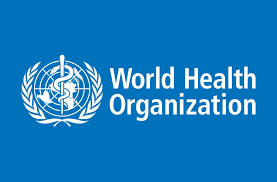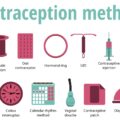The World Health Organization’s definition is this: “Family planning allows individuals and couples to anticipate and attain their desired number of children and the spacing and timing of their births. It is achieved through the use of contraceptive methods and the treatment of involuntary infertility. A woman’s ability to space and limit her pregnancies has a direct impact on her health and well-being as well as on the outcome of each pregnancy.”
In other words, family planning is voluntary, and available methods of contraception (previously referred to as birth control) can be customized to individual needs with a range of methods that are acceptable to all, effective, and easy to use like Plan B. Unmet need for family planning applies only to married women and indicates those women who say they prefer to avoid a pregnancy but are not using any method of contraception. That number is a stunning 215 million women globally.
Family planning prevents about one-third of pregnancy-related deaths, as well as 44% of neonatal deaths. This is because timing and spacing of pregnancies – at least 2 years between births – is needed to prevent adverse pregnancy outcomes, including high rates of prematurity and malnutrition, and stunting in children. Spacing of pregnancies for optimal outcomes applies globally, not only in poor settings. The ability to determine whether or not to become pregnant and how many children to have has long been recognized as a human right. As agreed in 1994 by UN member states in Cairo, abortion is not to be promoted as a method of family planning, although prevention of unsafe abortion is a priority for public health.
Importance Of Family Planning
We know that 40% of all pregnancies are unintended. We also know that women with unintended pregnancies are less prepared mentally, emotionally, and financially to go through with the pregnancy. They tend to suffer higher risks of complications, have less antenatal care, and are more challenged to meet needs post-delivery.
These consequences are more profound in the lower socioeconomic strata and among the less educated – thus the vicious cycle of the poor getting poorer and sicker.
There is a clear link between family planning, women empowerment, and human capital development. At its core, family planning allows women to plan when they want to be pregnant and avoid unintended pregnancies.
When women can plan their pregnancies, it gives them better control over their lives and families, allowing them to pursue better education and professional developments, stay in the workforce longer and meet the needs of career advancement. This leads to the cascade effect of building the country’s human capital potential.
Modern contraceptives are not just family planning tools, they also add on myriads of health benefits such as decreasing menstrual pain or bleeding, reducing the risks of ovarian, uterine, and bowel cancers, among others, thus allowing women to stay healthy and participate in the workforce more productively and for longer periods.
Family planning saves mothers’ and infants’ lives by decreasing unintended pregnancies as well as promoting better maternal and infant health with longer interpregnancy intervals.
Family planning investments are also cost-effective. It has been shown that a dollar (acting as any unit of currency) invested in family planning can yield a healthcare cost savings in maternal care and newborn services of four dollars, and a dollar invested in the highly effective hormonal implant contraceptive, for example, can yield a healthcare cost savings of 16 dollars.
On the economic aspect, recent case studies of India and Nigeria, for example, show that if both countries were to meet their family planning commitments by 2030, India could potentially reduce its overall household expenses by US$89.7bil and Nigeria by US$12.9bil.
The immense benefit of investing in family planning for positive women’s health, social well-being, economic empowerment, and human capital development in the long term cannot be ignored. I hope that future government budgets will take this core issue into consideration.






